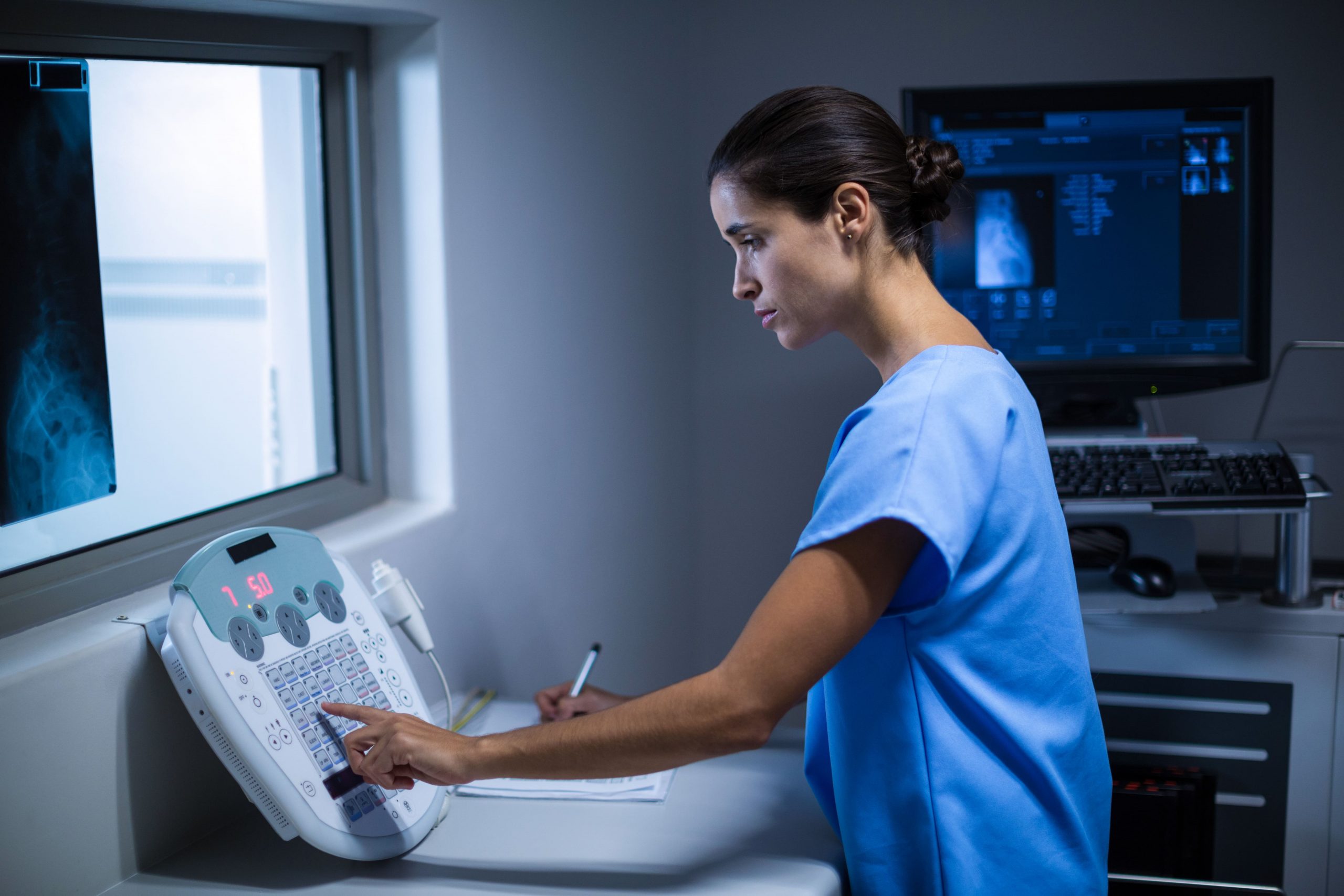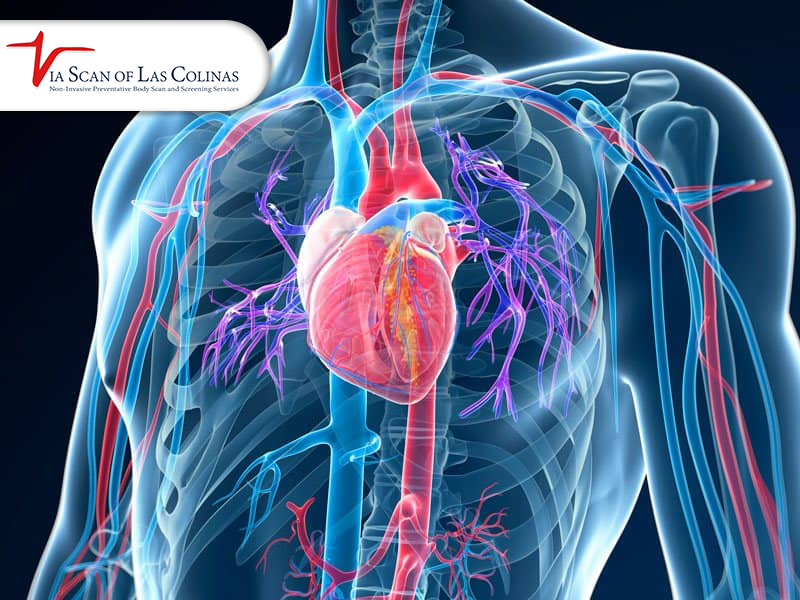It’s critical to take care of our health as we age. This includes adopting a healthier diet, exercising, and using screenings and preventive medications that can identify health concerns before they worsen. One condition that may be detected early and treated to help avoid heart attacks, strokes, and other heart disease-related problems is blocked arteries. In this blog, we will explore how you can identify this important risk factor at an early stage. Can a CT scan reveal obstructive arteries? What you should know is as follows.
A Heart CT Scan: What is it?
A cardiac CT scan is a noninvasive, painless procedure that examines the heart and surrounding blood vessels to find any artery blockages or narrowing and any heart pumping issues that could point to potential heart disease. A dye, also called contrast, is injected through an IV during the CT scan. With the use of this dye, we may identify a variety of heart diseases by tracking the blood flow through your heart’s blood channels and the heart itself.
When is a Heart CT Scan Necessary?
A team of cardiac imaging experts determines the appropriate cardiac tests for each patient. Typical causes of cardiac CT needs include:
- If you have chest discomfort and/or believe you may have coronary artery disease, a noninvasive method to find out if your pain is coming from coronary artery blockages or narrowing is cardiac CT angiography.
- Inconclusive stress test: If the information obtained from a stress test cannot definitively address your health concerns, we may suggest a cardiac CT scan to check for coronary artery disease or other heart issues.
- Existence of additional heart disease symptoms: Similar to chest pain, you may benefit from a cardiac CT scan to assess your heart for potential heart disease if you have shortness of breath, neck, jaw, back, or arm discomfort, among other symptoms.
How Can Blocked Arteries Be Found Using a CT Scan?
Since its inception, CT scanning technology has advanced significantly. Doctors may use CT scans to evaluate the amount of calcium accumulation in a patient’s arteries since the imaging is so comprehensive. Using a CT scanner, the calcium score test procedure entails:
- The machine’s electronic X-ray detectors pick up the X-rays after the scanner delivers them through the body.
- After processing the data, the CT scanner produces cross-sectional pictures.
- The heart and blood arteries are then shown in crisp 3D by reassembling these photos.
- Your doctor will use the pictures to assess your risk of heart attack or other heart-related problems. Your healthcare provider may suggest medication and lifestyle modifications if you have a high risk of developing heart disease to lower your risk of clogged arteries.
Guidelines for Getting Ready for a Heart CT Scan
You should do some things before a CT scan, which your doctor will go over with you. Until your physician instructs you differently, you should take your medicine as directed. Nevertheless, four hours before your treatment, you shouldn’t ingest coffee. There’s also a four-hour smoking ban that you must adhere to. The test findings will be impacted by the heart rate rise caused by caffeine and nicotine.
Choose Our Preventive Heart Scan
Early Detection Saves Lives!
-
- Accurate
- Quick Result
- Affordable

Heart CT Scan Results and Lifestyle Changes
Your CT coronary angiography pictures ought to be available soon after your test. You will probably be able to discuss the test findings with the healthcare physician who requested the test. If your test results indicate that you have or are at risk of heart disease, your provider might discuss treatment options. It’s always a good idea to adopt lifestyle modifications to assist protect the heart, regardless of the findings of a CT coronary angiography. Some heart-healthy lifestyle modifications are:
Regular exercise is important. It aids in weight control and lowers blood pressure, high cholesterol, and diabetes, all of which are risk factors for heart disease.
Consume nutritious meals. A heart-healthy diet low in sodium, cholesterol, and saturated fat and high in fruits, vegetables, and whole grains may all help manage blood pressure, cholesterol, and weight.
Give up smoking. One of the main risk factors for heart disease, particularly atherosclerosis, is smoking. The greatest strategy to lower your risk of heart disease and its consequences is to stop smoking. Consult your healthcare physician about smoking cessation techniques if you require assistance in stopping.
Control medical conditions. Take prescription drugs as prescribed if you have diabetes, high blood pressure, or high cholesterol. Find out from your doctor how often you require follow-up appointments.
Heart Scan And Calcium Scoring
One of the most significant variables affecting your general health and well-being is the condition of your heart. This is why timing is crucial when receiving the appropriate screening tests. The coronary calcium score test, sometimes called a calcium heart scan or calcium score, is one of the heart CT scan procedures that is becoming increasingly well-liked for evaluating heart health.
Using CT (computerized tomography) technology, coronary artery calcium scoring looks for accumulations of calcium in the coronary arteries, which feed the cardiac muscle with blood rich in oxygen. A medical condition known as atherosclerosis, in which plaque builds up on the wall of an artery, is indicated in these arteries by the accumulation of calcium. The resulting plaque gradually narrows and stiffens the coronary arteries, limiting blood flow. A heart attack may occur if the arteries are clogged.
The total score produced by the coronary calcium scan is determined by the degree of calcification within the coronary arteries. Higher scores are associated with more plaque accumulation and an increased risk of stroke and other cardiovascular diseases.
Conclusion
The arteries that supply the heart gradually narrow and solidify as time goes on. The secret to averting future unfavorable cardiac events is to catch it early and stop more calcium buildup. A heart CT scan can provide important information about your risk and state of heart health. To help you reach the best possible heart health, ViaScan of Las Colinas offers precise coronary calcium scoring and individualized guidance using our state-of-the-art CT equipment and specially trained radiologists.
FAQ
How does a CT scan show heart blockage?
During the CT, a dye (also known as contrast) is administered through an IV during the scan. This dye allows us to follow the blood flow in your heart as it travels through blood vessels and the heart to help diagnoses a wide range of heart conditions.
Cardiac CT uses advanced CT technology, with or without intravenous (IV) contrast (dye) to better visualize your heart structure and associated blood vessels. With multi-slice scanning, your healthcare provider can get high-resolution, 3D images of your heart and great vessels.
How to check heart blockage at home?
Monitoring your heart health at home can include taking regular blood pressure readings, measuring your heart rate, and even performing simple tests like the stair test. However, it’s important to remember that these methods are not a substitute for professional medical advice. If you notice any changes or have concerns, it’s always best to consult with your doctor and get heart scan at reputable facility like 123bodyscan for accurate assessment.


